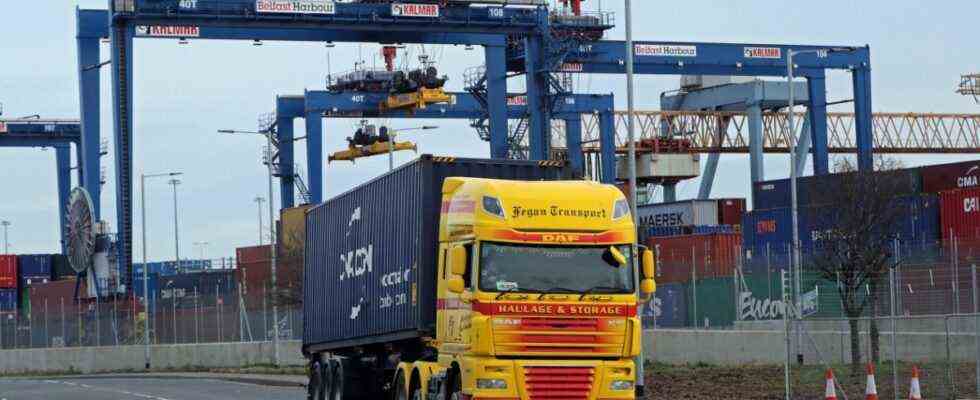The relief was great in December, but now it has given way to disillusionment and worry. Shortly before the end of the year, the EU and Great Britain agreed on a trade agreement, thus preventing the introduction of tariffs. At the same time, London and Brussels reached an understanding special rules for Northern Ireland. But now, a good eight months later, it has been shown that this so-called Northern Ireland Protocol is not working. Worse still: the British do not want to implement the requirements properly and prefer to renegotiate. That plunges the EU into a very nasty dilemma.
The protocol is intended to prevent customs officers from having to control trucks between the Republic of Ireland and British Northern Ireland. After all, if the border becomes visible again, it could put a strain on the peace process in Northern Ireland. The protocol therefore stipulates that the former unrest province will continue to comply with EU product rules and customs regulations despite Brexit. The logical consequence, however, is that deliveries of goods from England, Wales or Scotland to Northern Ireland must be checked. Because once trucks have left the Northern Irish ports, they can drive to the south of the island, i.e. to the EU – and from there by ferry to the other member states without any further controls.
Brussels has made a very big concession here and has given the British an enormous leap of faith. Of the common internal market is after all the heart of the European Union. Goods can be sold from one EU country to another without any bureaucratic hurdles, and consumers can safely purchase products from other EU countries – the safety standards are the same. The looseness on the inside forces hardness on the outside: At ports, airports and external land borders, officials have to prevent dangerous goods from entering the internal market, because what is inside can hardly be stopped.
British officials at ports in Northern Ireland are now taking on this important task. Brussels has therefore partly entrusted the integrity of the internal market to a non-EU state; Boris Johnson is partly responsible for ensuring that no incorrectly declared, inferior imported meat ends up in the refrigerated counter in supermarkets in Rostock or Rome. Sounds daring, but the EU has accepted it for the sake of peace in Northern Ireland. However, Prime Minister Johnson does not want to implement the protocol as agreed. He is bothered by the controls and bureaucracy involved in deliveries from the rest of the Kingdom to Northern Ireland. Because unfortunately he promised the voters that there will be no such controls.
Johnson could just ignore sanctions
This outrageous breach of contract does not yet pose a major risk to the internal market. The same high product standards apply in the UK as in the EU. So it shouldn’t be a problem if food from England gets into Northern Ireland and from there into the EU without proper controls. However, Johnson wants to deviate from EU rules in the future: That is the essential purpose of Brexit. In addition, criminals are always on the lookout for weakly secured entry gates to the EU internal market – and may soon prefer deliveries to Northern Ireland’s ports.
The EU can do little to counter this. Replacing vices on the ferries between the Republic of Ireland and France would degrade Ireland to a second-class member of the internal market – that is not an option. The best thing would of course be to persuade the British to comply with international treaties after all: with sanctions. In fact, the EU Commission has already initiated proceedings, but it can take time for them to ultimately result in punitive tariffs. There is also the risk that Johnson will let such sanctions roll off. The applause of the Brexit camp always seems to be more important to him than the well-being of the economy.
If there is no other solution, the EU will eventually have to set up truck checkpoints between Northern Ireland and the Republic. It would be an admission of failure, it could lead to new terror in Northern Ireland, it would be terrible. Even so, it may be the only way to protect the internal market and its 450 million consumers.

